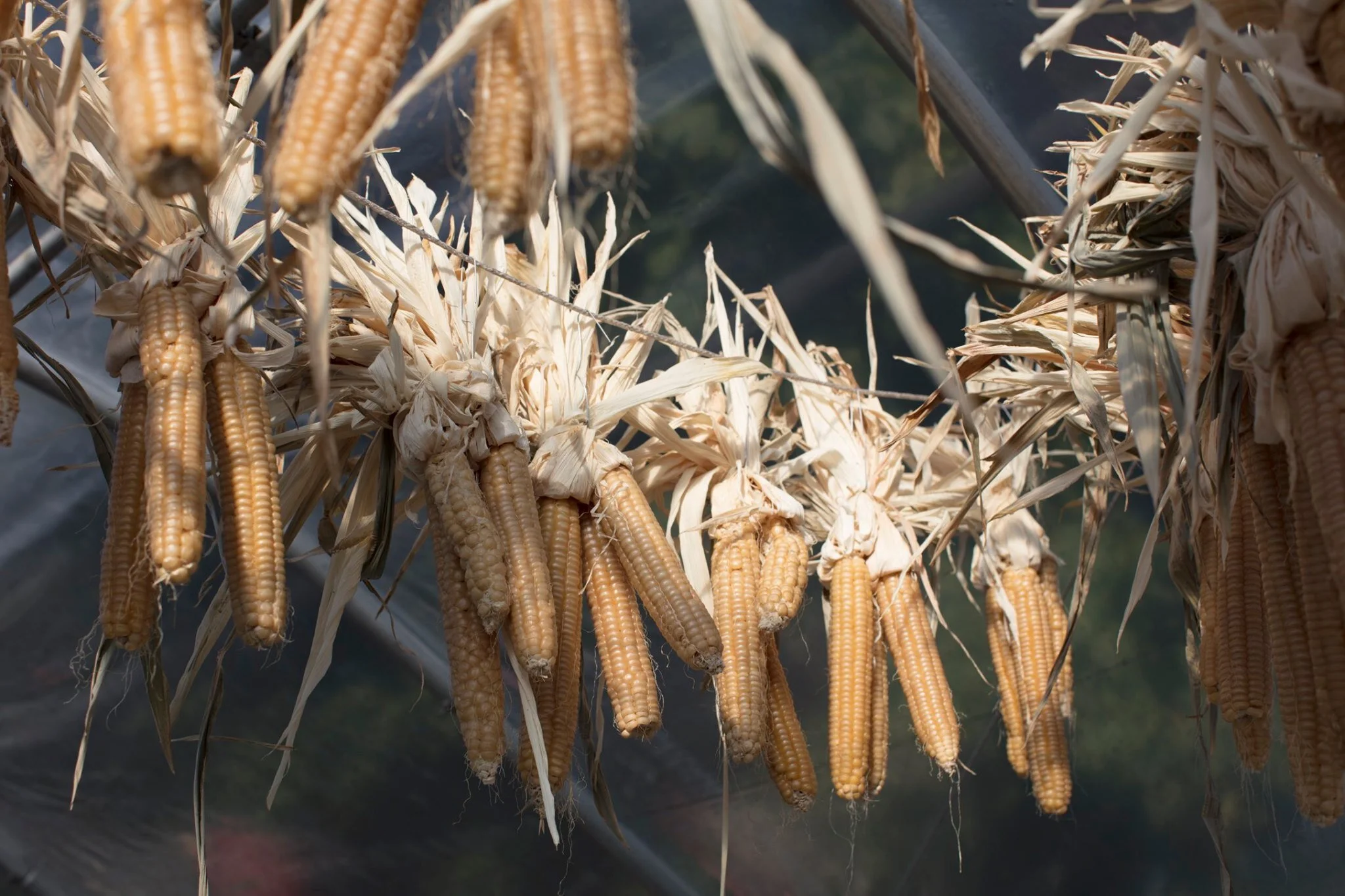Catherine Webb (Cherokee Nation) is a Seedkeeper and Programs Liaison between the Native American Cultural Center and the Yale Sustainable Food Program. This blog includes her poems, originally featured in the Yale Daily News, with a new introduction from Catherine.
Introduction
This poem is about planting The Three Sisters for the first time in my senior year of high school. In southern California, I was far away from my ancestral territory. But I connected through growing heirloom seeds from the Cherokee Nation.
When I came to Yale the next fall, I became the inaugural Seedkeeper and Programs Liaison between the Native American Cultural Center and the Yale Sustainable Food Program. Although I became the official link between the two, Noah Schlager (Poarch Creek Band of Indians) and Kapiolani Laronal (Haida/Tsimsian and Native Hawaiian) began the partnership and gardens in 2017.
In 2017, Elizabeth “Liz” Charlebois (Abenaki) gifted Noah Schlager Buffalo Creek Squash, Cranberry Beans, Skunk Beans, Pigeon, Beans White Cap Corn. In 2019, Sharon Maynard (Mohegan Council of Elders) gifted Abenaki Flint Corn and Delaware Black Flint Corn. The latter corn is said to have been used by medicine woman Gladys Tantaquidgeon, the Great Aunt of Melissa Tantaquidgeon Zobel, the current Medicine Woman and Tribal Historian for the Mohegan Tribe. In 2019, I planted seed from the Cherokee Nation seed bank, including Cherokee Colored Flour Corn, the Trail of Tears bean, and the Georgia Candy Roaster squash, at the NACC plot. Other students have contributed seed over the years, and the NACC plot also has hosted ground cherries, passionfruit, okra, and camas root.
When planting, building relationships with the land and the plants is essential. When I have planted The Three Sisters, ceremony has not been formal, but has always been intuitive and intentional. It is important to prepare for a good planting by maintaining good thoughts and energies to transfer into your work. It is also important to acknowledge and understand the land that you are on. Land acknowledgments are an opportunity to honor a tradition of asking for permission to enter and occupy space.
Yale occupies the ancestral homelands of the Quinnipiac, Paugusset, and other Algonquian-speaking peoples. Yale University had its beginnings with the founding of the New Haven Colony in 1638. With the establishment of the colony and Yale, the Quinnipiac were pushed out of their traditional land and relegated to the less productive lands east of the river, where Lighthouse park is today. The New England Indian Papers Series at the Yale Library provides valuable accounts from this time, largely through the second-hand writing of colonial settlers. What has happened on this land has happened across Turtle Island, and settler colonialism resulted in genocide. Oppressive tactics have not only aimed to eliminate people but also ways of life, including food systems.
Yale is inextricably connected to this history of oppression. But through holding space for Native plants and stewardship on the Yale Farm and the NACC plot, I believe that students, staff, and visitors alike can begin to go further than acknowledging the history of this land and actively support current decolonization efforts such as the #LandBack movement. As I write near the end of my poem, it is not enough to marvel at or acknowledge the resilience of a people. We need accomplices for justice.
A letter to maize, beans, and squash
Dear Sisters, you are my younger Sisters. I was eighteen years older than you when you rose from the soil. Isn’t soil like blood? Living, moving, providing. Heart pumping, I was planting and praying without knowing.
Dear Maize,
You are the oldest Sister like me. Your head was green, and my hair was black when we were born, at different times. But all life ages, and my hair became light like my mother’s and you grew silky ears. Little maize in little mounds, you looked like weeds until you outgrew me, waving in the wind, feeling the wind like I do when I am sailing.
Dear Beans,
Before I planted you around Sister Maize, I placed you in my mouth. My saliva broke down your defenses to prepare you for rebirth in Mother Earth. Silently saying: you will be a part of me again. Your abundant children nourish my body, just like you did for my ancestors. Trail of Tears bean, you remind me why I am here today. Blood to soil. Little black gift of life.
Dear Squash,
The vigorous youngest Sister, spreading low to the Earth body. Curling vines, sometimes trying to climb. Blossoming beautiful flowers, large protective leaves. Sometimes I wanted to climb under your fronds, so I could lay close to the Earth like you do. To feel the joy of our Sisters swaying and ascending and tilting towards Sun.
A letter to my Cherokee ancestors
My plant Sisters introduced me to you, as I’m sure you knew would happen. Seven generations ago, you were praying for me. Praying without knowing that I wouldn’t know you for eighteen years. Sometimes I wonder– if you knew I was white, would you still have prayed for me?
But I came to be because you came before. Because you touched the Earth and carried Seed. My Sisters reminded me of this, and taught me to remember. Not for myself, but for the next seven generations. Resilience? Yes. Justice? In time.
I am the Fourth Sister
I am the Fourth Sister. I am the Seedkeeper and I am a Two-Legged Seed who is also growing and giving and dying. Still water still runs in the blood, soil, and memory.
This poem was originally published on November 30, 2020 in the Yale Daily News online.

